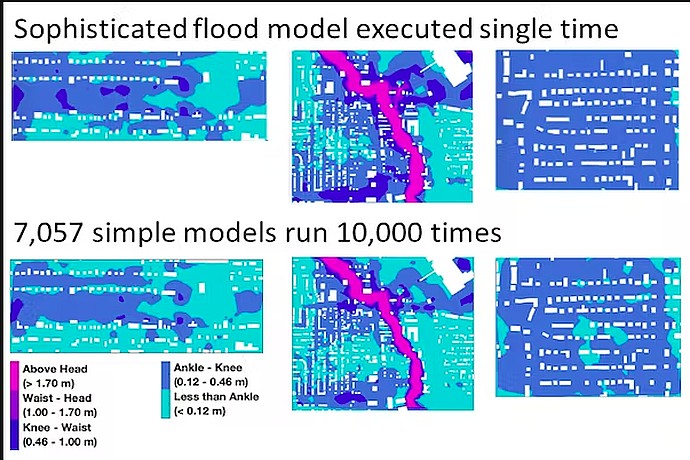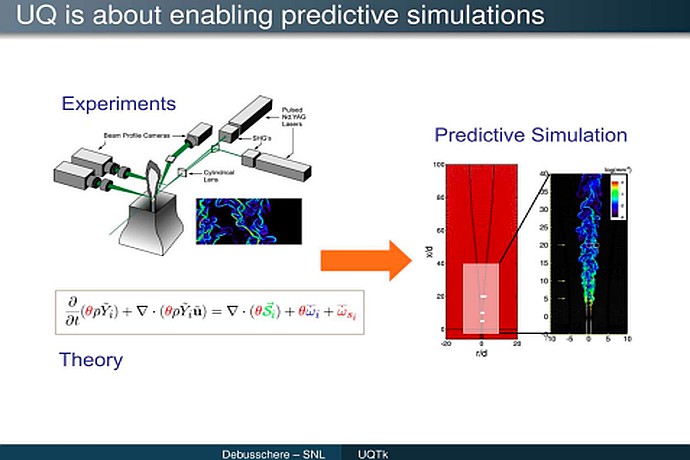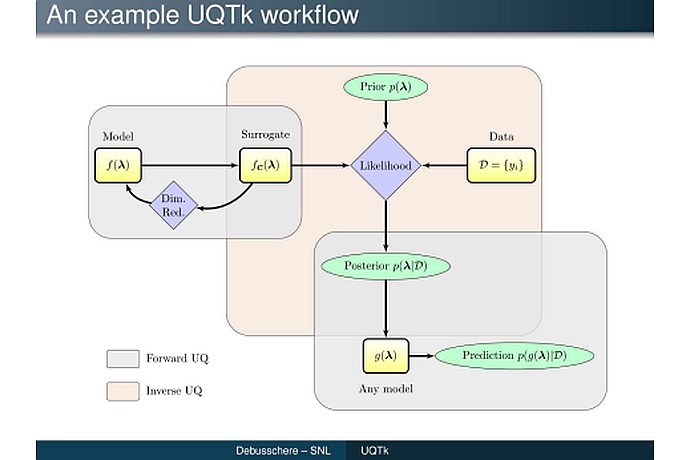
Language
Python
Tool Type
Manual, Algorithm
License
The 3-Clause BSD License
Version
3.1.3
Sandia National Laboratories

UQ Toolkit is a library specialized in quantifying uncertainties, using advanced analysis to evaluate probabilities in assumptions or hypotheses. It is a valuable tool both in the academic field and in organizational applications. Developed for the scientific community, UQ Toolkit allows you to analyze and evaluate complex scenarios, providing clarity and certainty in decision making by studying and evaluating uncertainty.
UQ Toolkit facilitates the understanding and management of uncertainties in various fields, allowing researchers and organizations to make more informed and accurate decisions based on robust quantitative analysis.
Uncertainty Quantification: Provides advanced algorithms for quantifying uncertainties in computational models, crucial for risk assessment and decision-making. Statistical Learning Tools: Includes statistical learning modules for data-driven modeling and prediction, enhancing model accuracy and predictive capabilities. Sensitivity Analysis: Offers tools for sensitivity analysis, enabling users to understand how variations in input parameters affect model outputs. Probabilistic Inference: Facilitates probabilistic inference, allowing for the integration of observational data and prior knowledge into model predictions. Surrogate Modeling: Supports surrogate modeling to create simplified representations of complex models, reducing computational costs while retaining key features. C++ and Python Integration: Compatible with both C++ and Python, providing flexibility and ease of integration into existing software ecosystems. Modular Architecture: Features a modular design, allowing users to easily implement specific functionalities as needed. Documentation and Examples: Comes with comprehensive documentation and example applications, aiding in quick adoption and effective usage. Cross-Platform Compatibility: Designed to be cross-platform, ensuring usability across different operating systems. Community and Support: Backed by a community of users and developers, offering support and collaboration opportunities.
Utilizes a CMake-based build system, ensuring efficient and flexible configuration. Supports both C++ and Python, allowing seamless integration with existing projects. Adopts a modular structure that facilitates code expansion and maintenance. Integrates external libraries, enhancing its functionality and reach. Offers cross-platform compatibility, ensuring usability across different operating systems.

Connect with the Development Code team and discover how our carefully curated open source tools can support your institution in Latin America and the Caribbean. Contact us to explore solutions, resolve implementation issues, share reuse successes or present a new tool. Write to [email protected]

The image represents a sophisticated flood model executed once alongside an example of 7,057 simple models executed 10,000 times using the uncertainty quantification feature of the UQ Toolkit software suite.

The image displays a "Experiments" diagram with cameras and lasers on the left, and a "Predictive Simulation" graph on the right. Below is a mathematical equation. Text: "UQ is for predictive simulations".

Flowchart of the "UQ Toolkit" showing a UQ workflow example. Includes components like model, surrogate, data, probability, prior, posterior, and prediction, distinguishing direct and inverse UQ.
Library of tools for quantifying uncertainty in numerical models, developed by Sandia National Laboratories.
